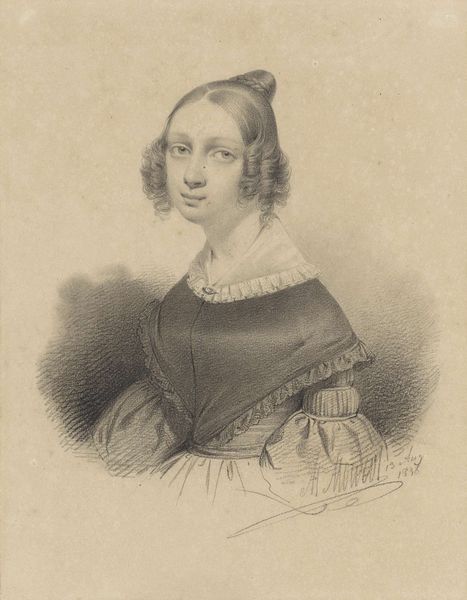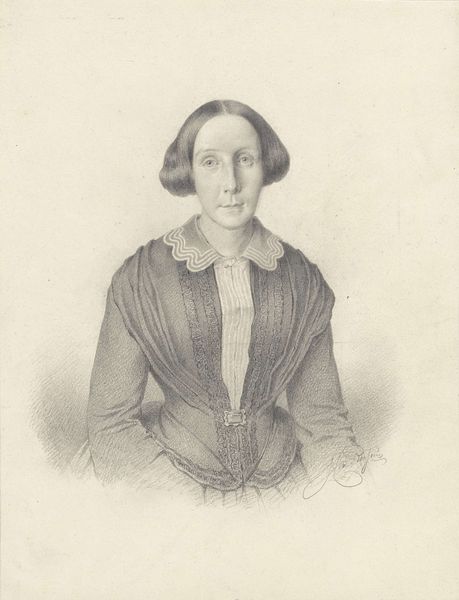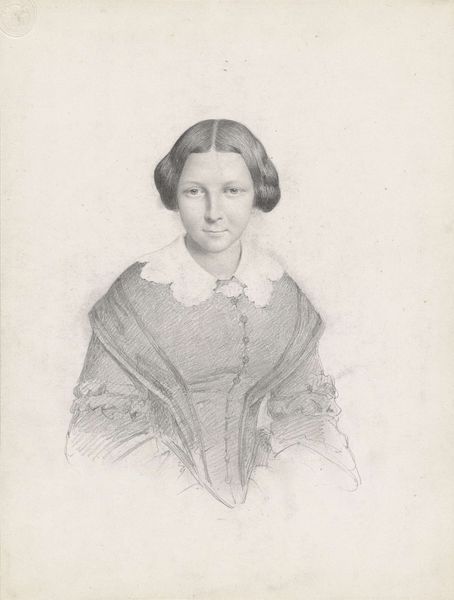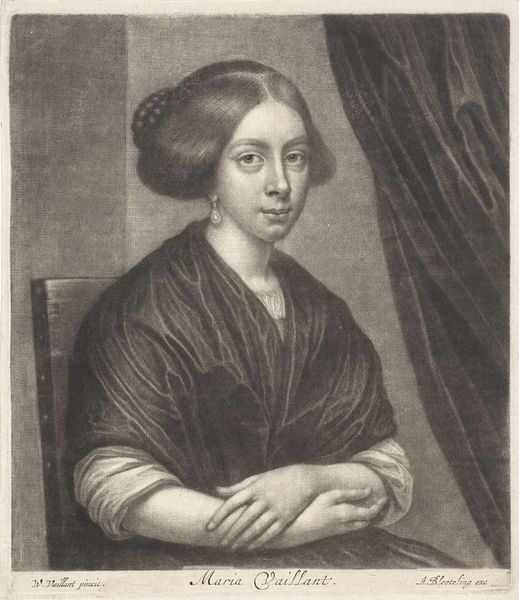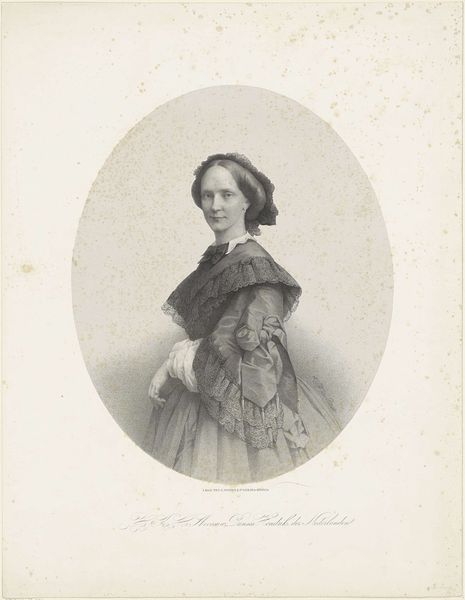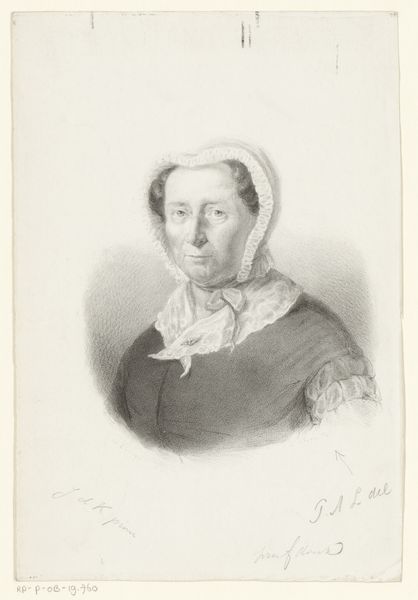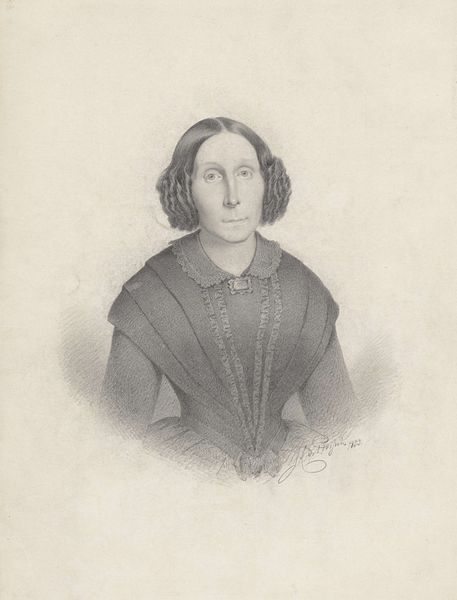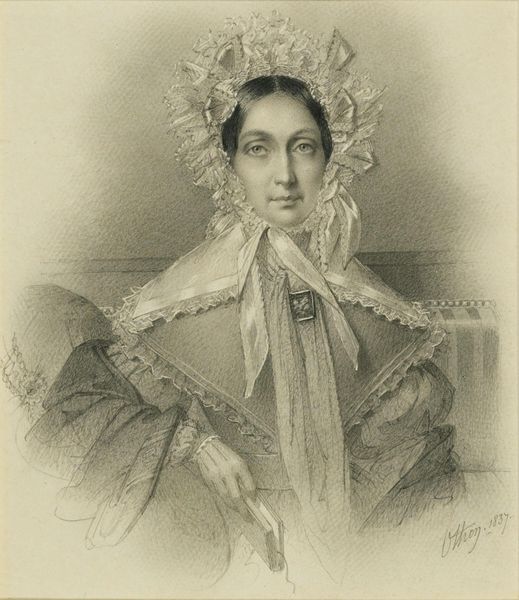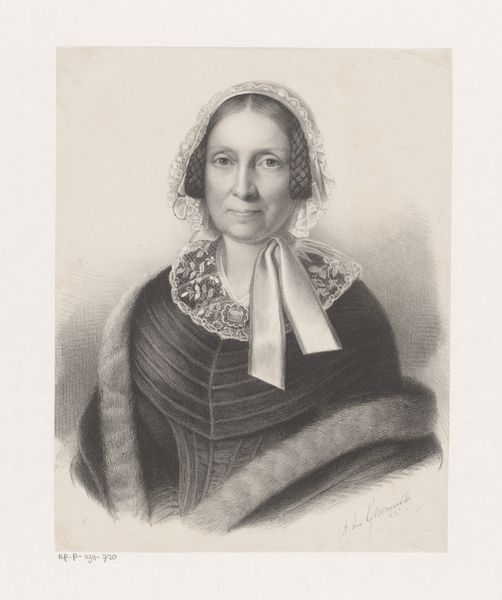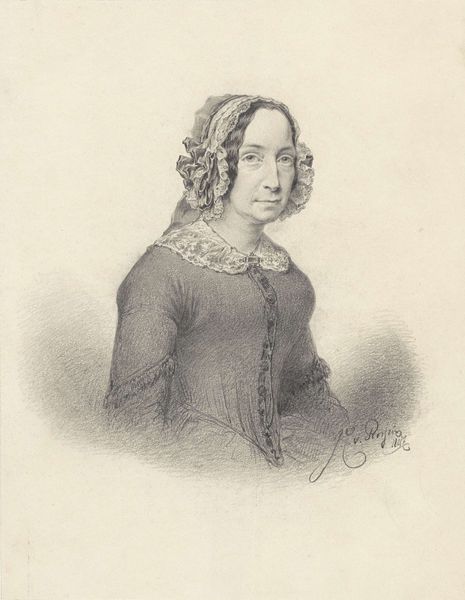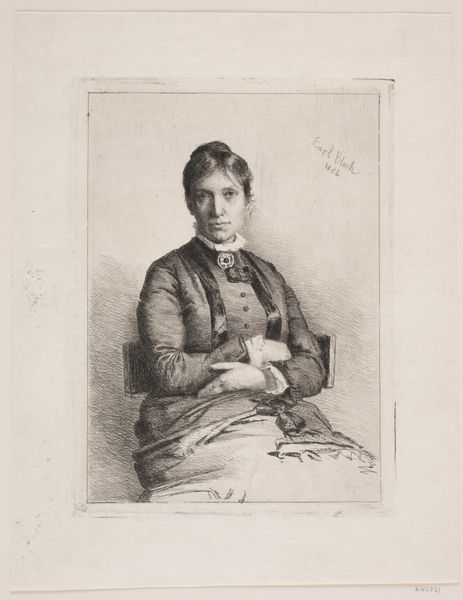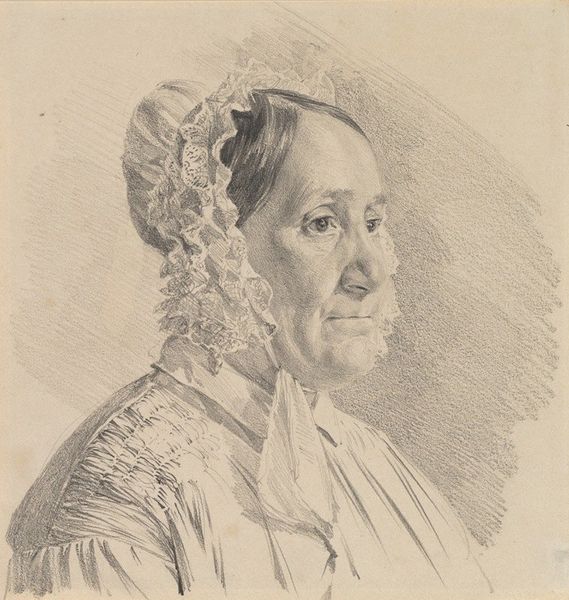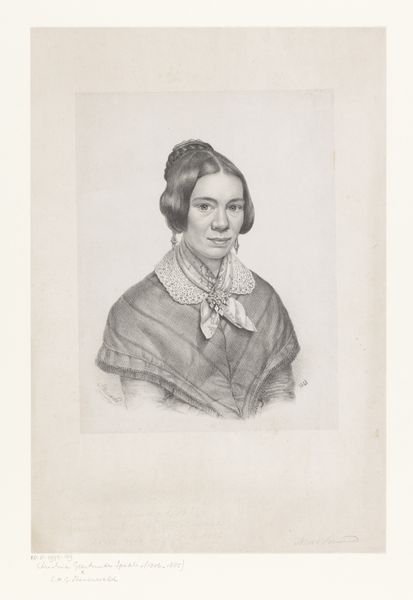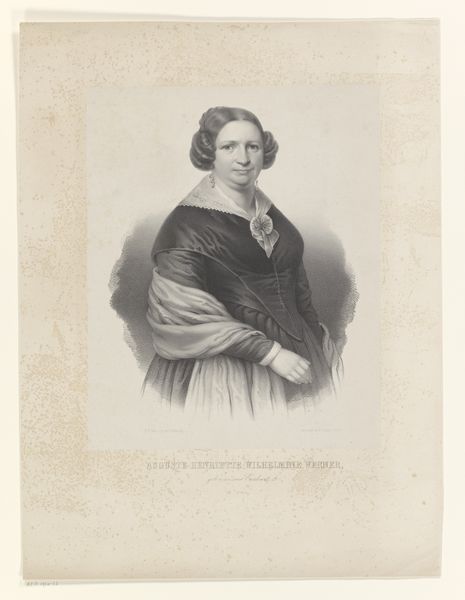
drawing, pencil
#
portrait
#
pencil drawn
#
drawing
#
amateur sketch
#
facial expression drawing
#
light pencil work
#
pencil sketch
#
portrait reference
#
idea generation sketch
#
pencil drawing
#
pencil
#
portrait drawing
#
pencil work
#
academic-art
#
realism
Dimensions: height 303 mm, width 230 mm
Copyright: Rijks Museum: Open Domain
Editor: Here we have Jan Cornelis van Rossum’s "Portret van een vrouw, driekwart naar links" from 1856, made with pencil. I’m immediately struck by how reserved and almost stern she appears. What social narratives do you see at play within this portrait? Curator: Well, it's tempting to see just a "reserved" woman. But I want us to think about the portrait's context. Consider 1856. How much control did women have over their image, their lives, their roles in society? Was “sternness” a kind of armour? Look at the lace around her neck, at the pin, at her hair. Do you think she had agency in deciding those details? Editor: I see what you mean. It’s not just a simple depiction. Perhaps her clothing and presentation represent an attempt to claim some individual identity within very constrained societal expectations? Curator: Exactly. Think about the male gaze, about how women were often depicted passively in art. This portrait pushes against that. It subtly acknowledges those societal structures, maybe even critiques them. Do you think it's possible to imagine how the very act of commissioning, or even posing for this portrait was a form of agency? Editor: Absolutely! Even if the artist was male, the woman herself, her posture, and perhaps even that “stern” expression could be a quiet act of self-assertion. Curator: Precisely. We often overlook the power dynamics inherent in portraiture and miss how much the sitter can communicate through their pose and attire, even in seemingly traditional works. What do you make of it now? Editor: Now, I see beyond the surface and find strength in what I initially perceived as just reserve. I’m also now considering this type of work in a larger context beyond my first reaction. Curator: And that is exactly why interrogating art with these frameworks allows us to see so much more.
Comments
No comments
Be the first to comment and join the conversation on the ultimate creative platform.
